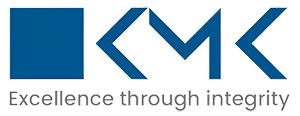Fund Accounting and Cap Table Reconciliation Made Easy with Carta and KMK

Introduction
In today’s rapidly evolving financial landscape, organizations —whether nonprofits, startups, or investment firms —must maintain precise control over how funds and equity are managed. Two critical tools in this space are fund accounting and cap table reconciliation. While fund accounting ensures accountability and compliance in managing restricted funds, cap table reconciliation maintains clean, accurate, and investor-ready ownership records. Platforms like Carta bring technology and automation into this mix, making these processes easier and more transparent than ever. In this blog, we’ll explore how fund accounting and cap table reconciliations work, how Carta supports them, and how KMK can help you get the most out of it all.
What Is Fund Accounting
Fund accounting is an accounting system primarily used by nonprofit organizations (NPOs) and government agencies. This system ensures the accurate expenditure of financial resources. Using this method of accounting, NPOs and government agencies maintain a record of fund allotment and track the amount of money allocated to various operations, ensuring that organizations justify the utilization of these funds. This system is designed to ensure that your nonprofit uses funds productively and respects the wishes of its stakeholders regarding the gifts they have contributed to such organizations. Here is a partial list of organizations that must use fund accounting:
- Traditional 501(c)(3) nonprofits
- Public, private, and family foundations
- K-12 schools
- Healthcare organizations
- Churches/faith-based organizations
- Government agencies
- Colleges and universities
- Professional associations
Generally, none of these organizations focuses on generating a profit. Hence, they are all exempt from federal income tax. However, if they need to maintain this status, they must allocate their entire quantum of funding to their missions. This is where fund accounting comes into play. It helps them to accomplish their fundamental goal.
What Are the Key Characteristics of Fund Accounting?
As described above, fund accounting helps track funds received by NPOs and categorize them accordingly. Let us now understand the key characteristics of fund accounting.
- Segregation of Funds: Fund accounting separates resources into distinct funds. Here, each has its purpose and set of accounts.
- Restriction Compliance: It ensures compliance with donor, grant, or legal restrictions on the use of funds.
- Accountability and Transparency: It enhances accountability by providing clear reports on fund usage to stakeholders.
What is Cap Table Reconciliation?
A cap table, also known as a capitalization table, is a record of who owns equity in a company, including founders, investors, and employees, along with the type and number of shares they hold. Over time, as a company raises money, issues new shares, or grants stock options, the cap table gets more complex. Cap table reconciliation verifies that this ownership data is accurate and matches legal documents, funding agreements, and transaction records. It is the process of double-checking and updating this table to ensure everything is correct and up to date. It’s essential during audits, fundraising, or when issuing new equity. Keeping the cap table clean and up to date helps avoid errors and ensures transparency with stakeholders.
What is Carta?
Carta is a fintech platform that simplifies equity management for private companies and startups. It offers tools to manage cap tables, issue and track stock options, support valuations for fundraising and tax compliance, and ensure regulatory adherence. Carta also streamlines the management of investor data, funding rounds, and employee equity plans. While its core strength lies in equity and ownership tracking, Carta can also support fund accounting needs. This is particularly relevant for venture capital and private equity firms that manage multiple investment vehicles and investor allocations.
Cap Table Reconciliations with Carta
Cap table reconciliations with Carta ensure ownership data remains accurate and consistent across all stakeholders. By automating equity tracking and centralizing records, Carta reduces manual work and improves visibility.
Key Benefits of Cap Table Reconciliation with Carta:
- Maintains a real-time, single source of truth for all equity transactions
- Automatically updates records for stock options, SAFEs, and convertible notes
- Simplifies reconciliations during audits, funding rounds, and valuations
- Enhances transparency and reduces compliance risks
- Improves collaboration between founders, legal teams, and investors
With these capabilities, Carta makes cap table reconciliation a seamless and dependable process, critical for companies preparing for growth, compliance, or investor reporting.
Fund Accounting with Carta
In addition to its well-known equity management and cap table tools, Carta also offers built-in support for fund accounting, particularly suited for venture capital and private equity firms. While fund accounting is traditionally associated with nonprofits and public entities, in the investment world, it refers to tracking the financial performance of funds, managing investor contributions, and ensuring transparent reporting. Carta helps streamline these functions by integrating fund-level data with equity and transaction records in a single platform.
Key Fund Accounting Capabilities with Carta Include:
- Seamless fund-level financial recordkeeping and reporting
- Automated capital call tracking and cash flow management
- Tax reporting support, including K-1 generation for investors
- Secure and customizable LP (limited partner) reporting
- Integration of fund performance with equity and ownership data
With these capabilities, Carta helps investment firms maintain accurate fund records, fulfill investor obligations, and ensure compliance, while reducing manual work and data silos. It transforms what is often a fragmented and spreadsheet-heavy process into a centralized, efficient fund accounting solution.
Read Also: Startup Fundraising 101: A Deep Dive into SAFE, Convertible Notes, and Equity Financing Options
How KMK Can Help
At KMK, we understand that managing fund accounting and cap tables—especially using platforms like Carta—can be complex and time-consuming. That’s where our team steps in to make it easier for you.
We work closely with venture capital firms, private equity funds, and high-growth startups to provide end-to-end support for both fund administration and cap table reconciliations. Our trained professionals ensure that your Carta setup is accurate, up-to-date, and fully compliant with financial reporting standards. From tracking investor allocations and preparing capital calls to reconciling equity transactions and managing K-1s, we handle the details so you can focus on growing your business or managing your fund.
Here’s how KMK adds value:
- Set up and manage Carta for both equity and fund accounting workflows
- Perform regular cap table audits and reconciliations to avoid discrepancies
- Assist with investor reporting and document organization within Carta
- Manage capital call processes, tax filings, and compliance checks
- Offer ongoing support to keep your data clean, current, and audit-ready
Whether you’re a founder juggling multiple funding rounds or a fund manager overseeing investor portfolios, KMK brings both technical expertise and hands-on support to help you get the most out of Carta.
Conclusion
Fund accounting and cap table reconciliation are crucial for ensuring financial transparency, fostering stakeholder trust, and achieving long-term success. Whether you’re a nonprofit managing restricted funds or a venture capital firm overseeing investor portfolios, having the right tools is essential. Carta provides automation and real-time visibility for these processes, enabling organizations to maintain accurate records, stay compliant, and make informed decisions.
However, technology alone isn’t enough, since you need the right partner to make it work effectively. That’s where KMK steps in. We provide expert, hands-on support to help you maximize the benefits of Carta, from equity management to fund-level reporting. Our team ensures that your system is implemented correctly, regularly updated, and aligned with your unique accounting and compliance needs, allowing you to focus on growth, impact, and investor relationships with confidence.
 Dev Kothari, a seasoned leader at KMK, heads the Special Teams, where he leverages his extensive expertise in managing large-scale accounting and tax return processing for U.S.-based clients. With a keen eye for workflow optimization and stakeholder collaboration, Dev drives exceptional efficiency and quality in high-volume project delivery. As a dual-qualified CPA (AICPA, Arizona) and Chartered Accountant (ICAI), Dev’s blend of strategic insight and technical prowess positions him as a key asset in ensuring KMK’s clients consistently achieve their financial goals.
Dev Kothari, a seasoned leader at KMK, heads the Special Teams, where he leverages his extensive expertise in managing large-scale accounting and tax return processing for U.S.-based clients. With a keen eye for workflow optimization and stakeholder collaboration, Dev drives exceptional efficiency and quality in high-volume project delivery. As a dual-qualified CPA (AICPA, Arizona) and Chartered Accountant (ICAI), Dev’s blend of strategic insight and technical prowess positions him as a key asset in ensuring KMK’s clients consistently achieve their financial goals.
Let’s Take Our Conversation Ahead
KMK is a top outsourced accounting and tax service provider. We offer end-to-end accounting and tax services for small to mid-sized businesses, with a team of 1000+ professionals, including certified public, chartered, and staff accountants.
USA:
651 N Broad St Suite 205, Middletown, DE 19709, USA
Phone: 310-362-2511
India:
300, Sankalp Square-3B
Sindhu Bhavan Marg,
Ahmedabad, Gujarat 380058
For Career: 91-98240-42996
Developed by Bluele | Copyright © 2026 | KMK Ventures Private Limited. | All Rights Reserved


